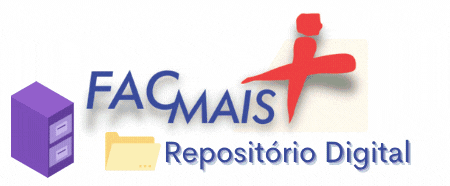Use este identificador para citar ou linkar para este item:
http://65.108.49.104:80/xmlui/handle/123456789/764Registro completo de metadados
| Campo DC | Valor | Idioma |
|---|---|---|
| dc.creator | VENÂNCIO, Andressa Tomé da Cruz | - |
| dc.creator | CARMO, Laís Gonçalves Moreira do | - |
| dc.date.accessioned | 2024-01-17T16:37:30Z | - |
| dc.date.available | 2023-12 | - |
| dc.date.available | 2024-01-17T16:37:30Z | - |
| dc.date.issued | 2023-12 | - |
| dc.identifier.uri | http://65.108.49.104:80/xmlui/handle/123456789/764 | - |
| dc.description.abstract | The application of extrajudicial inventory brings several benefits, being the facilitator of the heirs' lives, it is a faster, less expensive method and carried out in a consensual manner between them, thus avoiding the emotional exhaustion of the parties, another benefit is the reduction of litigation, with a direct and effective contribution, moderating demands of this nature in the Brazilian Judiciary. The general objective of this research is to demonstrate that the Extrajudicial Inventory is advantageous for the heirs and for the State, as it occurs more quickly, economically and values harmony between the parties involved. The research will be carried out by adopting the bibliographic review method, by reading specialized works, master's and doctoral articles and doctrines available in the online library collection of the Inhumas Education Center – FacMais, in the personal collection of the Notary's Office and on the internet . Furthermore, in a second stage, a documentary analysis will be carried out, based on the analysis of data provided by the National Council of Justice (CNJ) regarding judicial and extrajudicial inventory processes in the country, providing the opportunity for a comparative analysis between the institutes. The research achieved the desired result, demonstrating that the extrajudicial inventory is in fact advantageous for everyone involved, there is speed since it is not necessary to wait for the long deadlines of the judicial procedures, there are savings since it is cheaper to do it through the registry office, without that there are expenses with the judiciary and develop good coexistence between the heirs to make the sharing amicable. | pt_BR |
| dc.language | por | pt_BR |
| dc.publisher | Faculdade Facmais | pt_BR |
| dc.rights | Acesso Aberto | pt_BR |
| dc.subject | análise | pt_BR |
| dc.subject | economia | pt_BR |
| dc.subject | celeridade | pt_BR |
| dc.subject | harmonia | pt_BR |
| dc.subject | desjudicialização. | pt_BR |
| dc.title | APLICABILIDADE DO INVENTÁRIO EXTRAJUDICIAL E AS VANTAGENS DA UTILIZAÇÃO DESTE MÉTODO | pt_BR |
| dc.type | Outro | pt_BR |
| dc.description.resumo | A aplicação do inventário extrajudicial traz vários benefícios, sendo o facilitador da vida dos herdeiros, é um método mais célere, menos oneroso e realizado de forma consensual entre estes evitando assim o desgaste emocional das partes, outro benefício é a diminuição da litigiosidade, havendo uma contribuição direta e efetiva, moderando as demandas dessa natureza no Poder Judiciário Brasileiro. O objetivo geral desta pesquisa consiste em demonstrar que o Inventário Extrajudicial é vantajoso para os herdeiros e para o Estado, visto que ele ocorre de forma mais célere, econômica e preza pela harmonia entre as partes envolvidas. A pesquisa será realizada a partir da adoção do método de revisão bibliográfica, mediante leitura de obras especializadas, artigos e doutrinas disponíveis no acervo da biblioteca online do Centro de Educação de Inhumas – FacMais, no acervo pessoal do Cartório e na internet. Ademais, em um segundo momento, realizar-se-á uma análise documental, a partir da análise de dados fornecidos pelo Conselho Nacional de Justiça (CNJ) acerca dos processos de inventário judicial e extrajudicial no país, oportunizando uma análise comparativa entre os institutos. A pesquisa alcançou o resultado desejado, demonstrando que o inventário extrajudicial é de fato vantajoso para todos os envolvidos, há celeridade já que não é necessário esperar os extensos prazos das vias judiciais, há economia já que sai mais barato fazê-lo pelo cartório, sem que se tenha gastos com o judiciário e desenvolve o bom convívio entre os herdeiros para fazer a partilha de forma amigável. | pt_BR |
| dc.publisher.country | Brasil | pt_BR |
| dc.publisher.initials | FACMAIS | pt_BR |
| dc.subject.cnpq | CNPQ::CIENCIAS SOCIAIS APLICADAS::DIREITO | pt_BR |
| Aparece nas coleções: | Trabalho de Conclusão de curso | |
Arquivos associados a este item:
| Arquivo | Descrição | Tamanho | Formato | |
|---|---|---|---|---|
| TCC - Lais e Andressa.pdf | 185.07 kB | Adobe PDF | Visualizar/Abrir |
Os itens no repositório estão protegidos por copyright, com todos os direitos reservados, salvo quando é indicado o contrário.
